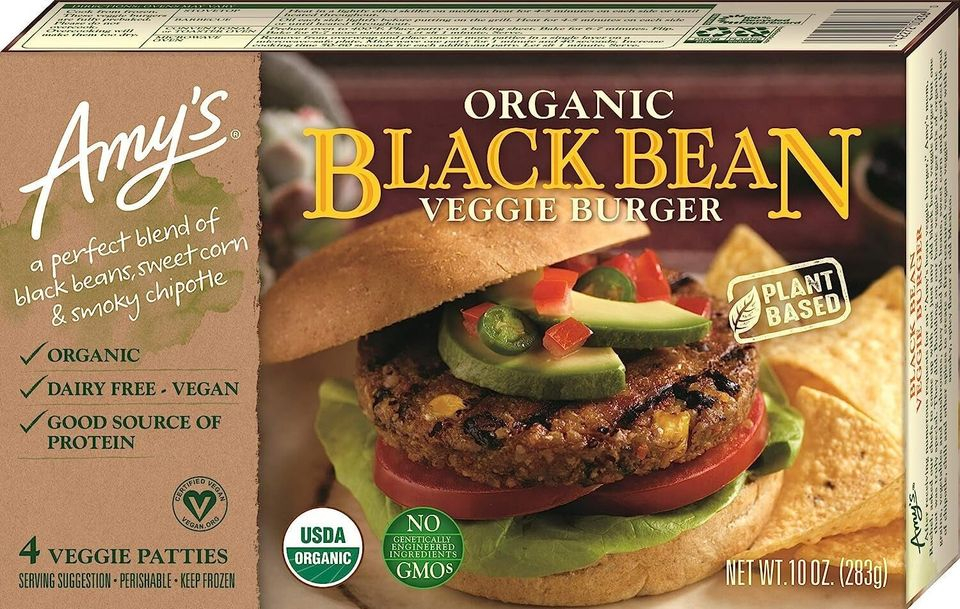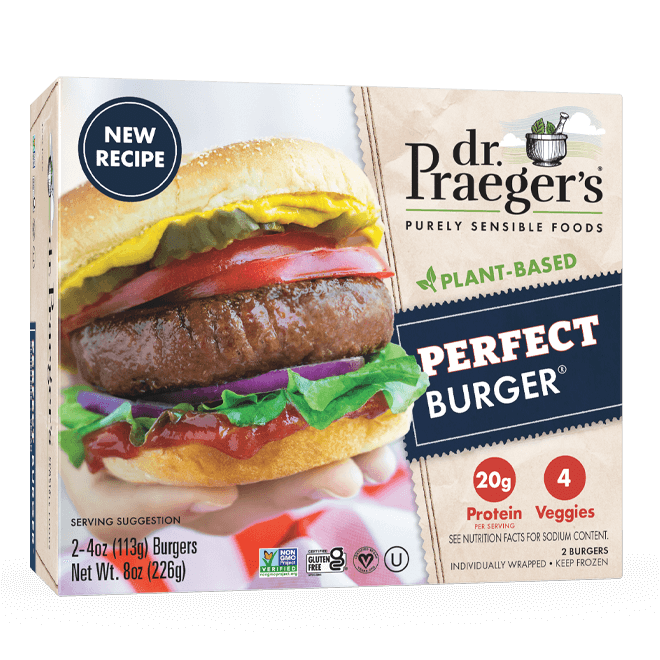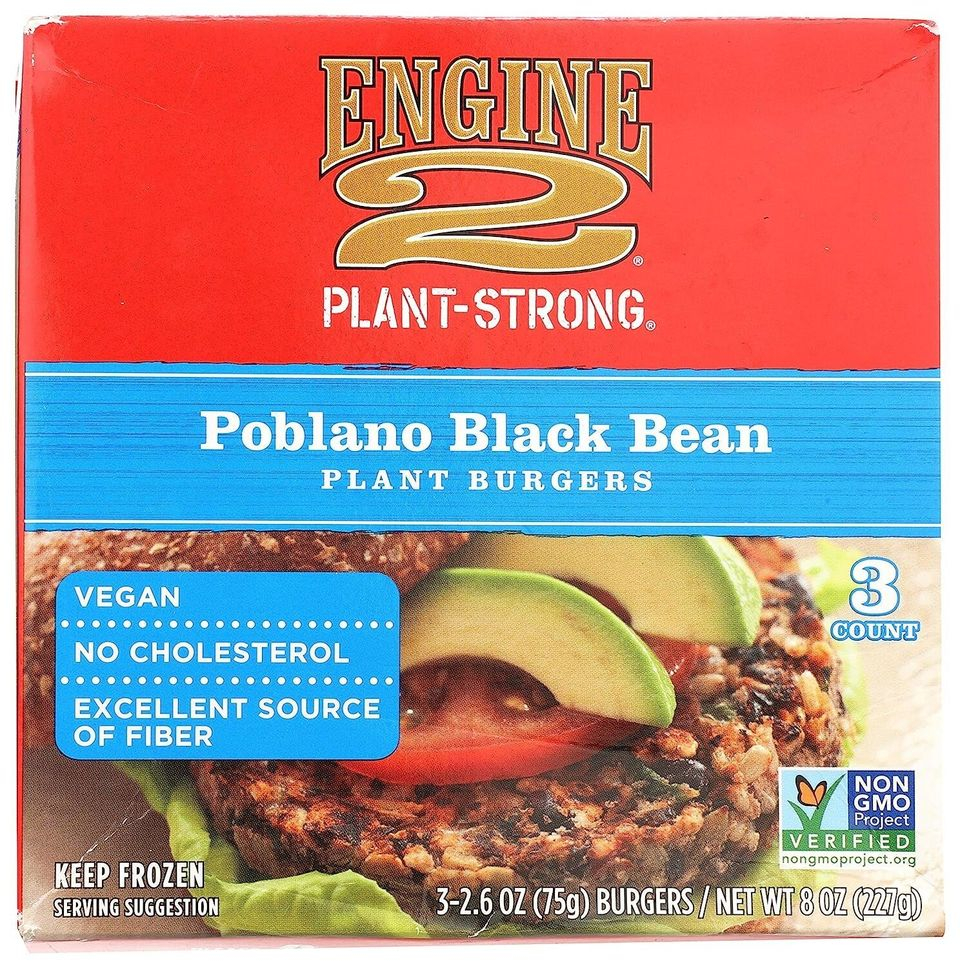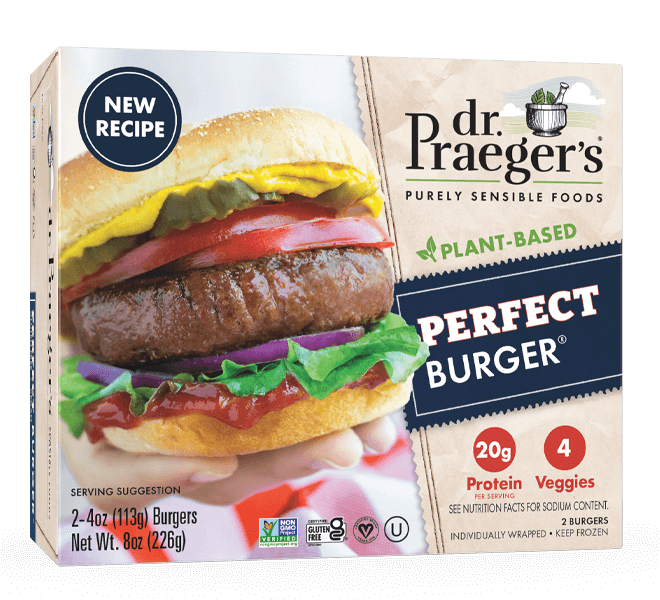Veggie burgers: A healthy alternative to meat burgers with essential nutrients
Looking for a healthy alternative to traditional meat burgers? Veggie burgers may just be the answer. Not only can they provide essential nutrients, but they also offer a variety of flavors and textures that can satisfy your burger cravings. However, not all veggie burgers are created equal. Some may be packed with additives, preservatives, or high levels of sodium. When choosing a veggie burger, it’s essential to look for brands that use whole-food ingredients and avoid unfamiliar or unpronounceable additives. Pay attention to sodium content and opt for burgers made with quality oils like olive oil or avocado oil instead of coconut oil, which is high in saturated fats. Additionally, be mindful of common allergens like soy and nuts that may be present in veggie burgers. If you’re unsure where to start, consider trying expert-recommended options such as Dr. Praeger’s Black Bean Quinoa Veggie Burgers or Hilary’s Organic World’s Best Veggie Burger. With these tips in mind, you can enjoy a delicious and nutritious veggie burger that satisfies your taste buds and supports your well-being.
Why choose veggie burgers?

Introduction to veggie burgers
Veggie burgers have gained popularity as a healthy alternative to traditional meat burgers. Made primarily from plant-based ingredients, veggie burgers offer a range of benefits that make them a favorable choice for those seeking a nutritious and sustainable option. These burgers have come a long way from being bland and tasteless patties; they now come in a variety of flavors and textures that can satisfy even the most discerning palates.
Health benefits of veggie burgers
One of the main reasons to choose veggie burgers is their numerous health benefits. Unlike traditional meat burgers, veggie burgers typically have lower fat content and fewer calories. They are also cholesterol-free, making them a heart-healthy choice. Additionally, veggie burgers often contain high amounts of dietary fiber, which aids in digestion and helps maintain a healthy weight.
Nutrient content of veggie burgers
Veggie burgers can be a significant source of essential nutrients. Many veggie burgers are fortified with vitamins and minerals, such as iron and B vitamins, which are commonly found in meat products. Furthermore, they often contain plant-based proteins, such as beans or soy, which are low in saturated fats and can provide all the necessary amino acids the body needs.
Factors to consider when choosing veggie burgers
When selecting a veggie burger, it is crucial to consider various factors to ensure you are making a nutritious choice. These factors include the nutritional value of the burger, additives and preservatives used, sodium content, the quality of oils used, and potential allergens present.

Nutritional value of different veggie burgers
Not all veggie burgers are created equal when it comes to nutritional value. Some brands utilize whole-food ingredients and offer a more balanced nutrient profile, while others may have higher levels of processed ingredients and additives. It is essential to review the nutritional information and ingredient list to ensure you are choosing a veggie burger that aligns with your dietary needs and goals.
Additives and preservatives in veggie burgers
Some veggie burgers may contain additives and preservatives to enhance flavor, texture, or shelf life. While these additives are generally recognized as safe by regulatory authorities, it is essential to be aware of their potential health effects. One example of a common additive found in veggie burgers is methylcellulose, which is used as a binding agent. Research suggests that high consumption of methylcellulose may have laxative effects, so it’s worth considering if you have a sensitive digestive system.

Sodium content in veggie burgers
One aspect to pay attention to when choosing veggie burgers is the sodium content. Some brands may use excessive amounts of salt to enhance flavor, which can be a concern for individuals monitoring their sodium intake. High sodium intake has been linked to increased blood pressure and a higher risk of cardiovascular diseases. It’s advisable to opt for brands that offer lower sodium options or consider seasoning the burger yourself to control the salt content.
Quality oils in veggie burgers
The choice of oils used in veggie burgers can significantly impact their overall nutritional value. Look for brands that use quality oils like olive oil or avocado oil, as these oils are rich in monounsaturated fats, which are considered heart-healthy. On the other hand, veggie burgers made with coconut oil may have higher levels of saturated fats. While coconut oil has gained popularity in recent years, it is still recommended to consume it in moderation due to its potential impact on cholesterol levels.

Allergens in veggie burgers
Individuals with food allergies or intolerances must be cautious when selecting veggie burgers. Common allergens that may be present in veggie burgers include soy, gluten, and nuts. It is essential to carefully read the ingredient list to identify any potential allergens. Fortunately, there are now many allergen-free options available in the market, so individuals with specific dietary restrictions can still enjoy the benefits of veggie burgers.
Nutrients in veggie burgers
Veggie burgers offer a variety of nutrients that are essential for overall health and well-being. They are often a good source of protein, which is crucial for muscle repair and growth. Protein in veggie burgers is typically derived from plants like beans, lentils, or soy. Additionally, veggie burgers can provide a significant amount of dietary fiber, promoting digestive health and aiding in weight management. Lastly, they are often fortified with vitamins and minerals, such as iron and B vitamins, making them a well-rounded choice.

Understanding food additives in veggie burgers
Food additives are commonly used in the production of veggie burgers to enhance their texture, taste, and shelf life. Two additives you may commonly come across are methylcellulose and xanthan gum. Methylcellulose acts as a binder, helping to hold the burger patty together, while xanthan gum is used as a thickener and stabilizer. While both additives are generally recognized as safe, it is essential to be aware of their presence and consider personal tolerance to these ingredients.
Evaluating sodium content in veggie burgers
The sodium content in veggie burgers is an essential factor to consider, especially for individuals watching their sodium intake. High levels of sodium can contribute to an increased risk of hypertension and cardiovascular diseases. The recommended daily sodium intake for an adult is around 2300 mg, although some individuals may need to consume less. When comparing different veggie burger brands, opt for options that have lower sodium levels to ensure you are not exceeding your daily limit.
Choosing veggie burgers with quality oils
The choice of oils used in veggie burgers can have a significant impact on their nutritional value. While some brands utilize healthier oils like olive oil or avocado oil, others may use coconut oil. Coconut oil is high in saturated fats, which can negatively affect cholesterol levels when consumed in excess. For individuals looking to make a healthier choice, it is advisable to opt for veggie burgers made with quality oils that contribute to a balanced and heart-healthy diet.
Identifying allergens in veggie burgers
If you have food allergies or intolerances, it is essential to carefully check the ingredient list of veggie burgers for any potential allergens. Common allergens that may be present include soy, gluten, nuts, or other ingredients. Accidental consumption of allergens can lead to adverse reactions, so it is crucial to be diligent in your research before making a choice. Fortunately, many brands now offer allergen-free options, providing individuals with dietary restrictions the opportunity to enjoy veggie burgers safely.
Expert-recommended veggie burger brands
When it comes to choosing the best veggie burger, expert recommendations can be invaluable. Some well-regarded veggie burger brands include Dr. Praeger’s, Hilary’s, Engine 2, and Amy’s. Dr. Praeger’s offers a range of flavorful options, such as their Black Bean Quinoa Veggie Burger and Kale Veggie Burger. Hilary’s Organic World’s Best Veggie Burger and Fiesta Black Bean Veggie Burger are known for their high-quality ingredients. Engine 2’s Poblano Black Bean Veggie Burger provides a tasty and nutritious option, while Amy’s Organic Black Bean Veggie Burger is a popular choice among veggie burger enthusiasts. These brands have garnered positive reviews for their taste, texture, and overall nutritional value, making them reliable options for those in search of a satisfying veggie burger experience.
In conclusion, veggie burgers offer a healthier alternative to traditional meat burgers while providing essential nutrients. When choosing veggie burgers, it is important to consider factors such as nutritional value, additives and preservatives, sodium content, oils used, and allergens present. By being mindful of these factors and selecting brands that prioritize whole-food ingredients and allergen-free options, you can make a well-informed decision that suits your dietary needs and preferences. Remember, enjoying a delicious and nutritious veggie burger is not only good for your health but also for the environment. So go ahead and explore the wide range of options available to find the perfect veggie burger for you.

